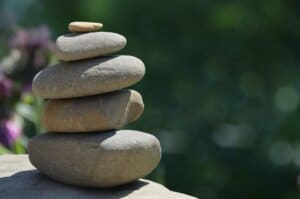Most of us are taught, as young children, to have patience. We learn by having to wait, to fidget, be bored and then get our reward. However, as each generation has grown up, and technology has shortened our having to have patience, it has become less of a need. If we get bored, we whip out a phone or device and begin to distract ourselves. Or, we get everything we want so quickly – a response over text, a package in 2 days or less. We don’t need to cultivate the same level of patience we once did.
The Danger Of Not Having A Reservoir Of Patience
Yesterday, my sister tried some new app on her phone. She tried to Zelle or Venmo or some money from one account to another. She believed the money would show up in her account immediately. But when it did not, she freaked out. She called me in a panic, and I knew I had to stay with her on the phone to make sure she calmed down. I did this by assuring her that sometimes it takes time for technology to respond. Maybe her internet was glitching. She just had to relax and know that the money would appear.
It took a few minutes, but sure enough, it arrived. I remained on the phone with her to make sure she wouldn’t have a secondary heart attack. Thankfully, she was fine. But it showed me how important it is to remember that life is not immediate.
Sometimes life takes its own time.
So often, we have an agenda that we desire the universe to adhere to. We have our life plan. And then life doesn’t go according to the plan. We don’t get the job promotion, the person we planned to marry had other plans or we just don’t feel we are succeeding in meeting our goals. Whatever isn’t working out in our lives is not a punishment. Rather – it is helping us cultivate “Spiritual Endurance.”
What Is Spiritual Endurance?
Spiritual Endurance is the practice of letting go of a desired outcome. It is the giving up of the story of where you think you are supposed to be. Inayat Khan – founder of a Sufi Mystical order in the West, said that, “patience is the power of endurance during the absence of a desired outcome.” When we practice letting go of a desired outcomes, we are free. We are no longer trapped by the constraints of what how we think life should look.
In order to cultivate spiritual endurance, there are some steps we can take. Through these steps, we gain acceptance of where we are, and belief that we will get where we are supposed to be at the right time.
- Slow down. Life has gotten so fast. We no longer have to wait for anything. In olden days, if a fruit was out of season, we’d have to wait. Today, we only have to go to a different grocery store where we can get anything we want more readily. Slowing down gives us the ability to access if we really need something or just want it. The difference can mean freedom for our soul.
- Stay in motion. Just because we haven’t reached our goals doesn’t mean we should stop striving. We can remain active, working steadily toward the outcome – knowing that being an overnight success sometimes takes many years.
- Set reasonable and achievable goals. I didn’t realize that I had to-do lists that I could never conquer. But I was told they were not reasonable lists! By setting appropriate and reachable goals, I could continue to strive. And although I had to be patient, I felt that I was at least working toward something.
- Continue to cultivate hope. Hope is what keeps us alive. We need not give up on what we think we want. But rather, make sure that we are enjoying the journey to get to the goal. So often we forget to enjoy the journey. Instead, we judge ourselves harshly when we don’t get what we desire. We think we have failed. But we have not. Instead, we are being taught spiritual endurance and our soul is learning to have patience.
The Story Of The Sunflower
There was a teacher who gave her students some sunflower seeds. Each student planted their seeds and watered the ground patiently. They talked about how much they would enjoy eating their seeds when the time came. The students waited until they grew. One student, who particularly loved sunflower seeds, opened one flower to get the seeds before everyone else. He tried to eat the seeds before the sunflower had ripened. He spat out the seeds on the ground, disappointed that he’d taken down one of the flowers so early. He saw the other sunflowers ripening, offering their seeds to all of the children in the proper time.
The child learned the value of patience
We get the best when we cultivate the seeds of our lives and gain spiritual endurance and patience by working for that which we desire.
As I wait for my new website to be built, I too am going through the process of gaining spiritual endurance. So, if you are waiting and working toward a goal – welcome to the spiritual path. Until we meet again, may you be blessed along your spiritual journey!
Drop me a comment or email and let me know how you are gaining spiritual endurance and learning patience.
Other blog posts about patience:
http://rabbicosnowsky.com/having-faith-when-it-seems-that-nothing-is-happening/
http://rabbicosnowsky.com/finding-faith-when-the-future-is-so-uncertain/



